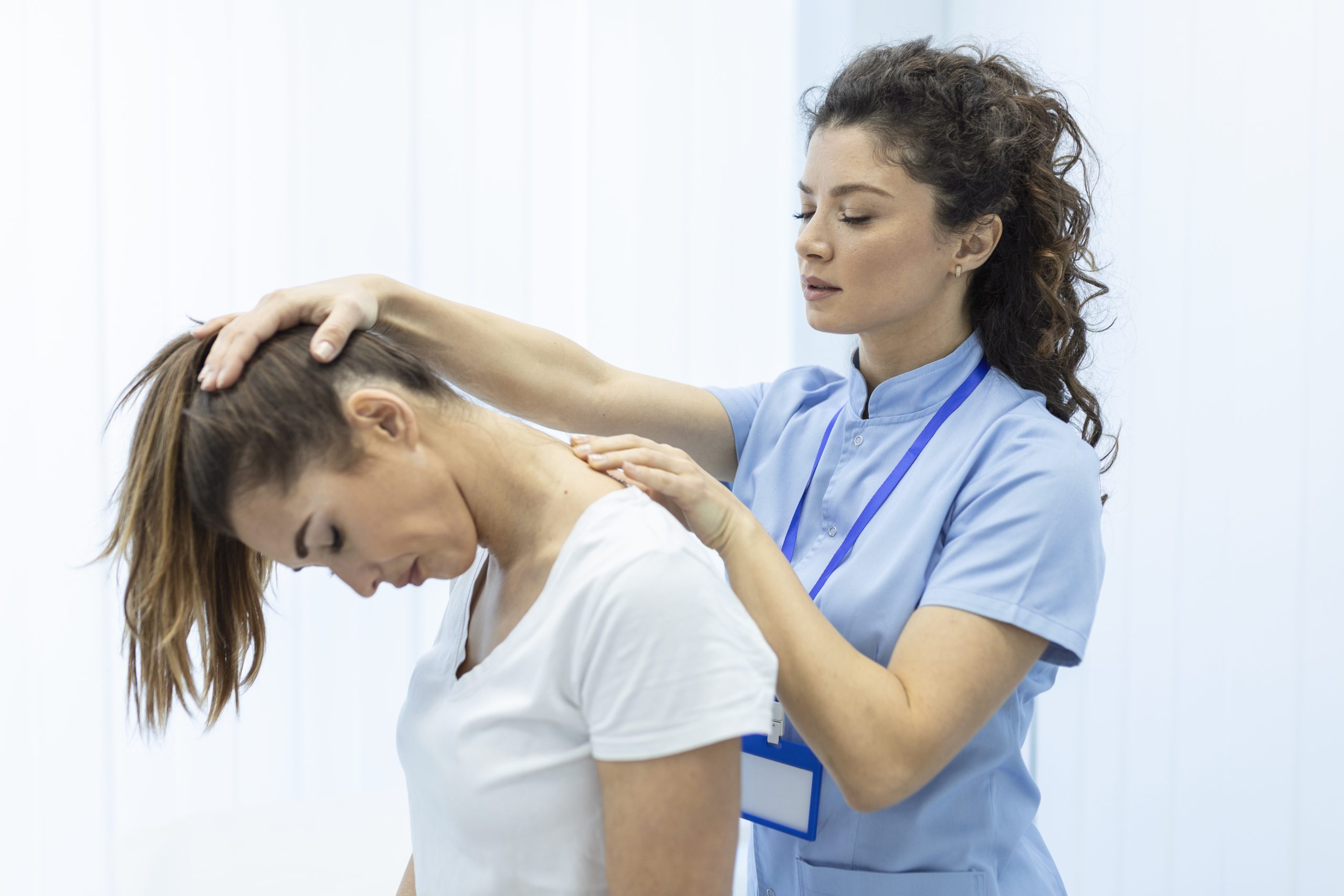

After suffering a stroke, Heather Rendulic was left with limited use of her left hand and arm, making it difficult for her to perform daily tasks like tying shoes or chopping meals. “I live one-handed in a two-handed world and you don’t realize how many things you need two hands for until you only have one good one,” the Pittsburgh woman told The Associated Press.
Rendulic agreed to participate in a ground-breaking experiment in which scientists implanted a device that zaps her spinal cord in regions that regulate hand and arm mobility. She was able to grab and control objects when they turned on, move a soup can, unlock a lock, and towards the end of the four-week research, cut her own steak.
The gains stopped when the temporary implant was removed, so it’s not a cure, and only Rendulic and one other stroke survivor were enrolled in the pilot research. But, the preliminary findings, which were released on Monday, represent a step towards one day regaining mobility for this exceedingly prevalent kind of paralysis.
“They’re not just getting flickers of movement. They’re getting something important,” said Dr. Jason Carmel, a Columbia University neurologist who wasn’t involved with the new experiment but also studies ways to recover upper-limb function. “It’s a very exciting proof of concept.”
Every year, over 800,000 Americans experience a stroke. More than half of patients still have permanently reduced arm and hand function, which can range from muscle weakness to paralysis, even after months of rehabilitation. Spinal zaps could be a game-changer for them.
Some research teams’ experiments have shown that implanting electrodes to stimulate the lower spine shows promise for regaining leg and foot movement to those who are paralyzed following a spinal cord injury; some of these individuals have even taken steps.
However, upper-limb paralysis, which is fundamentally more difficult, has received little attention. For the shoulder to raise, the wrist to swivel, and the hand to flex, the brain must send signals to several nerves. Stroke damage hinders the transmission of those messages.
“People still retain some of this connection, they’re just not enough to enable movement,” said University of Pittsburgh assistant professor Marco Capogrosso, who led the new research with colleagues at Carnegie Mellon University. “These messages are weaker than normal.”
His idea: Stimulate a pathway of related nerve cells so they’re better able to sense and pick up the brain’s weak signal. “We’re not bypassing their control. We’re enhancing their capabilities to move their own arm,” he said.
In order to relieve chronic pain, researchers employed implants the size of spaghetti strands that are already used to stimulate the spine. The targeted nerve cells for hand and arm control are located in the neck region of the spine, and the implants contain electrodes that are positioned on the surface of the spinal cord to transmit electrical pulses to those cells.
As soon as the stimulator was turned on, Rendulic and a second, more severely disabled volunteer could walk more easily, and by the end of the study, they displayed enhanced muscle strength, dexterity, and range of motion, according to a study published on Monday in the journal Nature Medicine. Remarkably, for approximately a month after the implants were removed, both patients continued to improve.
more recommended stories
 Pediatric Crohn’s Disease Microbial Signature Identified
Pediatric Crohn’s Disease Microbial Signature IdentifiedKey Points at a Glance NYU.
 Nanovaccine Design Boosts Immune Attack on HPV Tumors
Nanovaccine Design Boosts Immune Attack on HPV TumorsKey Highlights Reconfiguring peptide orientation significantly.
 High-Fat Diets Cause Damage to Metabolic Health
High-Fat Diets Cause Damage to Metabolic HealthKey Points Takeaways High-fat and ketogenic.
 Acute Ischemic Stroke: New Evidence for Neuroprotection
Acute Ischemic Stroke: New Evidence for NeuroprotectionKey Highlights A Phase III clinical.
 Statins Rarely Cause Side Effects, Large Trials Show
Statins Rarely Cause Side Effects, Large Trials ShowKey Points at a Glance Large.
 Anxiety Reduction and Emotional Support on Social Media
Anxiety Reduction and Emotional Support on Social MediaKey Summary Anxiety commonly begins in.
 Liquid Biopsy Measures Epigenetic Instability in Cancer
Liquid Biopsy Measures Epigenetic Instability in CancerKey Takeaways Johns Hopkins researchers developed.
 Human Antibody Drug Response Prediction Gets an Upgrade
Human Antibody Drug Response Prediction Gets an UpgradeKey Takeaways A new humanized antibody.
 Pancreatic Cancer Research: Triple-Drug Therapy Success
Pancreatic Cancer Research: Triple-Drug Therapy SuccessKey Summary Spanish researchers report complete.
 Immune Cell Epigenome Links Genetics and Life Experience
Immune Cell Epigenome Links Genetics and Life ExperienceKey Takeaway Summary Immune cell responses.

Leave a Comment